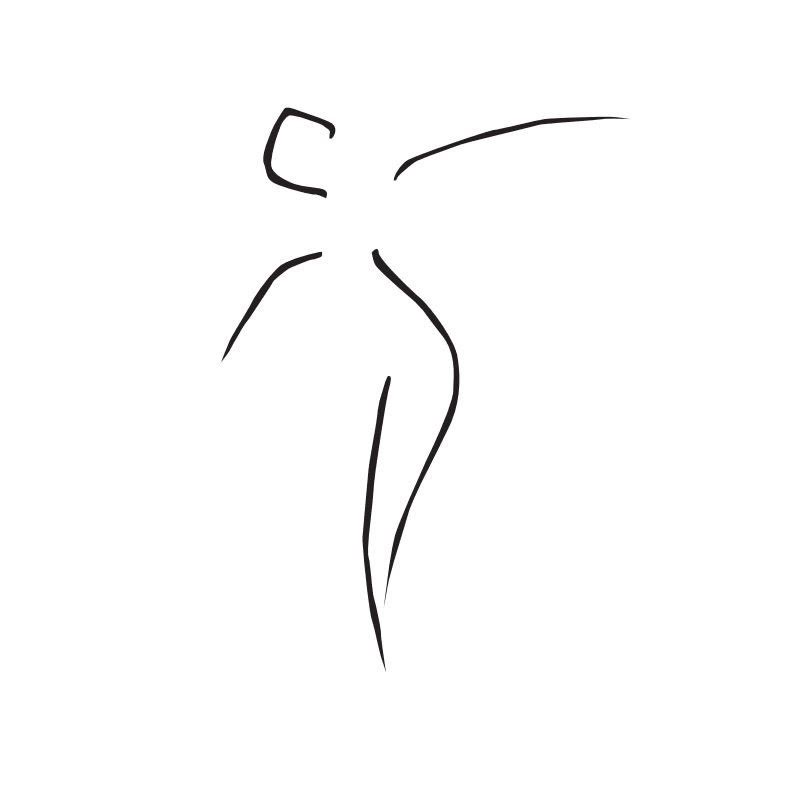Su Wen Chapter 1 - Chill Out
It's been a while since my last post! I've been running around like a chicken without it's head and thought, "what a perfect time to blog about that constant, on-the-go lifestyle and why we shouldn't be doing it." The way we live here in NY, it's a miracle if we have any free time. If we're not at work, we're working around our homes, running errands, or taking care of others. Sleep? Fahgettaboudit. Vacation? What's that? Time to rest is a foreign concept these days, but back when our classic text the Su Wen was written (about 2,500 years ago), rest was imperative to a healthy lifestyle. In this excerpt is a conversation between the Yellow Emperor, Huang Di, and his acupuncturist, Qi Bo:
"'I have heard that
the people of high antiquity...
all exceeded one hundred years.
But in their movements and activities there was no weakening.
As for the people of today,
after one half of a hundred years, the movements and activities of all of them
weaken.
Is this because the times are different?
Or is it that the people have lost this [ability]?"
Qi Bo responded:
"The people of high antiquity,
those who knew the Way,
they modeled [their behavior] on yin and yang...
[Their] rising and resting had regularity.
They did not tax [themselves] with meaningless work.
Hence, they were able to keep physical appearance and spirit together
and to exhaust the years [allotted by] heaven.
Their life span exceeded one hundred years before they departed.'"
Long translation short, if we all chilled out a little bit, we would all live to be 100 years old. But let's dive into this a bit. If you look back at my previous blog post about the power of yin and yang, you'll understand that it's not a theory of opposition, but one of complementary aspects that expands throughout the entire universe. This includes our lifestyle. The constant on-the-go lifestyle would be an aspect of yang, and more sedentary lifestyles would be an aspect of yin. When we properly balance our rest and activity (rising and resting), and don't sweat the small stuff (aka meaningless work), we age slower and get sick less often and therefore, can live the amount of time given to us by heaven. This theory is backed by actual science.
Long term effects of stress
Generally, our bodies are actually pretty good at handling stressors. We encounter a stressor, deal with it, and move on. That being said, we are constantly surrounded by stressors. It doesn't matter if you're actually fighting for your life, being yelled at by your boss, or watching a scary movie. All stress effects your body the same way. When we conitnue to be stressed, however, and can't break the cycle, it can lead to:
- Headaches
- Digestive distress, such as gastritis, ulcers, and reflux
- Insomnia
- Anxiety and depression
- High blood pressure
- Heart attack
- Stroke
One may reason that getting over stress and breaking the cycle is easy- go to your happy place. But there are other factors at work here. Ever hear of cortisol? It's a hormone your body releases in addition to epinephrine and nor-epinephrine in response to stress. If epinephrine and nor-epinephrine make you run or fight, cortisol keeps you running or fighting. It stays in your system much longer than the catecholamine hormones and makes you more sensitive to further stress. Thus, the more frequently we get stressed, the more difficult it is to get over stress, and the easier it becomes to feel stressed. If you're not getting enough time to physically rest, your body will continue to believe it is under stress and produce cortisol which furthers the sympathetic nervous response. Thus, a vicious cycle can be created.
Cortisol's effect on the body
In an attempt to harvest as much energy as possible to deal with your stressor, cortisol takes from systems that aren't considered necessary. Basically, all the functions of the "rest and digest" aspect of the parasympathetic state. The only thing that is important right now is survival: everything goes towards running and fighting. The rest can be delt with later after the stressor has been dealt with. This leads to suppression of your general immune response, slowed wound healing, counteraction of insulin which means higher blood sugar levels (more sugar in the blood means faster energy uptake), and reduced bone formation contributing long term to osteoporosis. It will also prevent collagen production (hello wrinkles), decreases amino acid uptake by muscles leading to decreased muscle mass, and inhibits protein synthesis (also made with amino acids). Amino acids are the building blocks of life. Since building muscles and proteins aren't a priority, preventing the body from using the amino acids means more building blocks to create more stress hormones to keep you running and fighting for your life. Decreased amino acids available in the blood can also cause gastrointestinal distress, and drops in blood pressure. Cortisol is also linked with your diurnal cycle. The amount of cortisol will decrease with as little as 3 hours of sleep, but with all that energy running through your system, it's going to be very difficult to get some. Lastly, increased levels of cortisol have been found in mood and anxiety disorders, psychological stress (the emotional side of all this), impaired learning, and difficulty retrieving long term memories.
As you have most likely surmised, though this process will get you out of immediate danger, to continue in this state long term will lead you to the same place you're trying to avioid. Moral of the story, don't be like me a run around like a chicken without it's head. Take some time to be a little more yin. Let your body rest and recuperate to prevent the effects of stress and you too can live to be 100.
